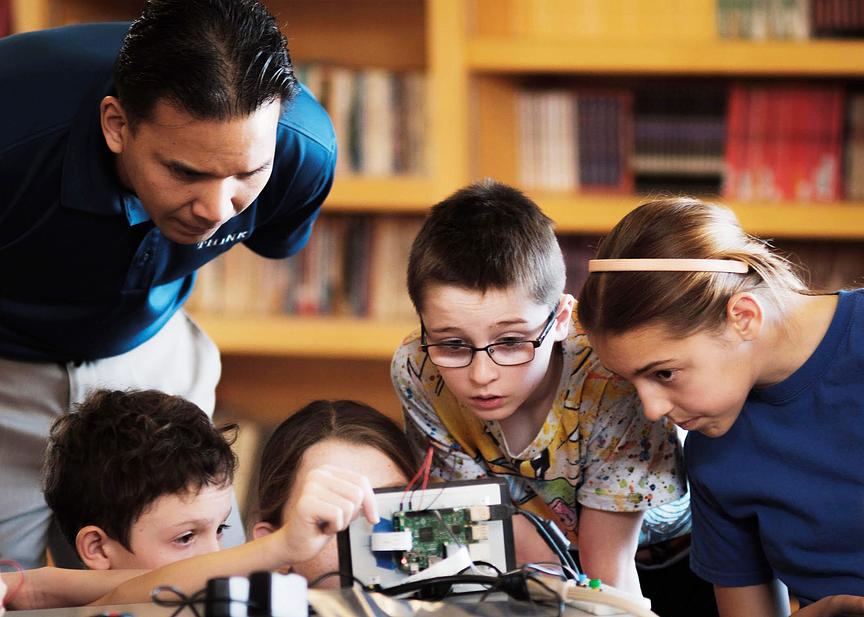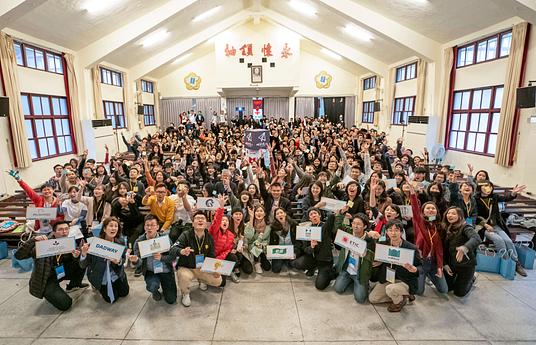As achievement gaps and inequality continue to grow in our education system, we must find solutions that actively engage and prepare all students, regardless of socioeconomic background, for the careers of the future. With 40-60% of students chronically disengaged in school, this is a significant challenge. The top reason students cite for disengaging and dropping out of high school is lack of interest because school is not relevant to their lives and career aspirations. Not surprisingly, 95% of teenagers believe more real-world learning opportunities would improve school.
Fortunately, a large body of research illuminates several pathways for heightening student engagement:
• Pairing academics with real-world examples increases student learning
• Exposure to new ideas and people leads to student engagement
• Supportive relationships with family and community adults can significantly reduce dropout rates and increase student academic performance.
• Community engagement is a hallmark of strong STEM career programs
It is clear our communities can play a critical role in ensuring students have the support to reach their full potential. Communities can not only heighten student engagement but also expand students’ social capital, by allowing students and teachers to tap a wealth of real-world expertise and support through a network of community professionals. According to Harvard researcher Dr. Robert Putnam and many other researchers, social capital is a critical predictor of educational attainment, academic achievement and economic success, regardless of a student’s socioeconomic background.
Despite the power of real-world connections, most of the value in communities remains a latent, untapped resource. So why is community engagement not more central to learning and our education system? A survey of 9,000 teachers in Southern Arizona found that 84% of respondents want more engagement with community partners, but face two significant barriers: they don’t have time to find partners and don’t know where to look.
CommunityShare is working to address these two barriers by reimaging the relationship between communities and schools. Our goal is to create a more equitable learning ecosystem by creating a “public cloud” of social, cultural, creative, and intellectual capital that any teacher can access.
Our innovative, research-based model includes two key components: an online “matching” platform and “offline” education programming. CommunityShare’s online platform serves as a human library of regional wisdom and expertise, or as the Christian Science Monitor recently described, a “Craigslist for public education.” Community members – including artists, scientists, parents, retirees, and business leaders – register and create online profiles to indicate the expertise that they would like to share with teachers and students. Classroom educators then search online for community members whose real-world expertise matches the needs and interests of their students and the goals of their curriculum. Community members matched with classrooms can serve as volunteer mentors, project collaborators, content area experts, internship hosts, guest speakers, and more.
Our offline programming helps schools and communities build a culture and practice of community-engaged, real-world learning. We offer educator-driven professional development workshops, school-based artist residencies, grants to support innovative school and community partnerships, facilitated professional learning communities for visionary educators, and multimedia storytelling workshops that celebrate the impact of real-world learning.
Our platform and programming make it easy and efficient for teachers to find and engage community partners in order to:
● Increase student engagement through real-world learning experiences based on students’ interests
● Increase the number of parents and caring community adults supporting students (only 25% of students believe adults in their community value them )
● Heighten teacher support and connectivity (90% of teachers believe collaboration is critical, yet teachers spend just 3% of their day collaborating with other adults )
● Increase students’ awareness of and preparation for diverse career and academic pathways (critical since the average school counselor to student ratio (1:480) is nearly double the recommended ratio.)
● Increase equitable access to social, intellectual, creative, and cultural capital
Through meaningful engagements with community partners, students experience the real-world application of what they are learning in school, connect with caring adults and resources in their community, explore new passions and career paths, and imagine a future they perhaps never knew existed. In turn, community members share their expertise and gain a greater understanding of the schools and student populations in their communities, enabling them to become more informed and inspired advocates for a more equitable education system.
Though CommunityShare was launched in Tucson, Arizona, we have recently expanded to other cities in U.S. and welcome inquiries by schools, districts, government municipalities, education institutions, and others who are interested in bringing CommunityShare's online platform and implementation support to their region.



